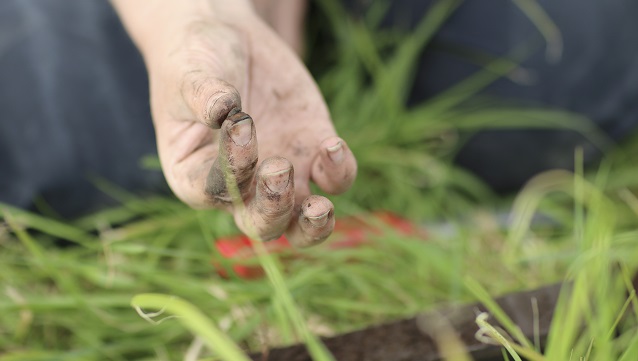To mark World Soils Day (5 December) Professor Chris Collins looks at the state of the World’s soils and what the future might hold. In its latest report on the status of global soils the United Nations Food and Agriculture Organisation stated that their future was bleak without action to halt degradation.
Soils provide habitat for a quarter of all the animal species on Earth, the cycle the nutrients that provide our food, prevent flooding and store carbon to mitigate climate change.

So how do we protect our soils? At the recent science conference for the Natural Capital Committee which provides advice to government on the sustainable use of our natural assets, I presented an ‘oven ready deal’ for soils. If we follow the principles outlined here we have an opportunity to protect and improve the quality our soils.
The ‘deal’ has three primary components:
- Give soils the same protection as air and water
- Place soils at the heart of Environmental Land Management Scheme (ELMS)
- Undertake a census to develop the baseline
The first action requires us to develop legislation to protect our soils from further degradation. Legislation has resulted in significant improvements in our water and air quality over the past 20 years for example only 1.7% of our bathing waters are now classified as poor. The new ELMS places the environment at the heart of government support for agricultural support actions. It is vital that the promises of improved soil management become a reality with a range of improved practices such as cover crops and reduced tillage. Finally we need to know the current status of our soils, only then can we target improvements. We have not undertaken such an evaluation since 2007 a new survey is required.
If we can undertake these three actions we will be able to set a course to improve our soils which will lead to improvements to our environment and through that our physical and mental health.
Chris Collins is a professor in the Department for Geography and Environmental Science.
